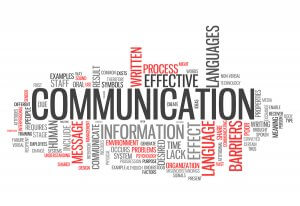 The ability to be a good communicator is a critical business skill. However, according to a survey by Teja Jadhav (from the the University of Findlay) and Shiv K. Gupta (from the University of Findlay) 41% of people thought the biggest mistake their manager makes is inappropriate communication. So what are the problems that lead to this and how can we improve?
The ability to be a good communicator is a critical business skill. However, according to a survey by Teja Jadhav (from the the University of Findlay) and Shiv K. Gupta (from the University of Findlay) 41% of people thought the biggest mistake their manager makes is inappropriate communication. So what are the problems that lead to this and how can we improve?
Everything we say, write and do as a manager communicates a message. But being a good communicator is not just about delivering a message, but also about that message being heard correctly by the recipient. This means ensuring the message you communicate is clear. Some managers find this hard, because they are so concerned about not upsetting people and being diplomatic that the real message becomes unclear to the recipient. Such managers will hint at what they want doing rather than issuing a more direct request or instruction.
For example, the manager who lacks confidence in giving critical feedback might say “You have to step up to the plate” whereas what they really mean is “These are the areas you need to improve on… this is how I expect you to improve… and this is the time frame I expect it in."
Another problem managers have when communicating is trying to communicate too much information. As a good “rule of thumb” most people can pick up 3 key points from any verbal communication. If the manager tries to communicate more than this at a single point in time – the classic “Oh and just one other thing…” then most people have already tuned out and the communication fails. So to be a better communicator, keep your communications concise.
A final communication problem is not listening. Arguably, one of the most difficult times to listen is when you feel under pressure. Such situations can arise when one of your team comes to you wanting to talk through an idea or problem that they have, but which you feel is irrelevant or trivial. In these situations it is easy for the manager to become more dictatorial, uttering phrases which effectively negate the other person’s opinions in an attempt to shut them up.
Good managers know that people are entitled to have their ideas and concerns addressed respectfully and so engage in active listening and constructive discourse.
The good news is that, with training, we can all improve our communication skills. If you want to improve, check out our e-learning course for managers which contains modules specifically focused on improving key communication skills.
